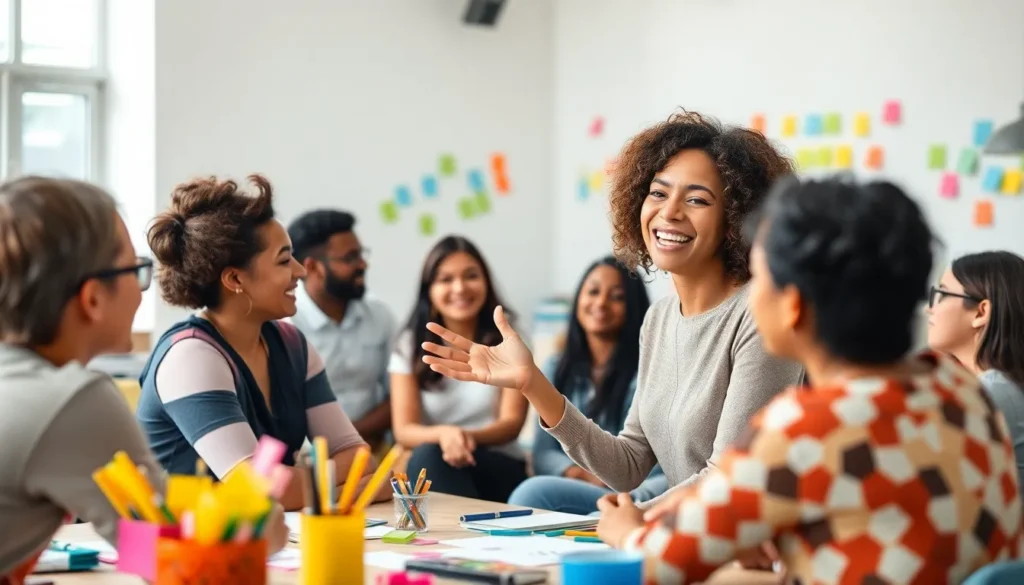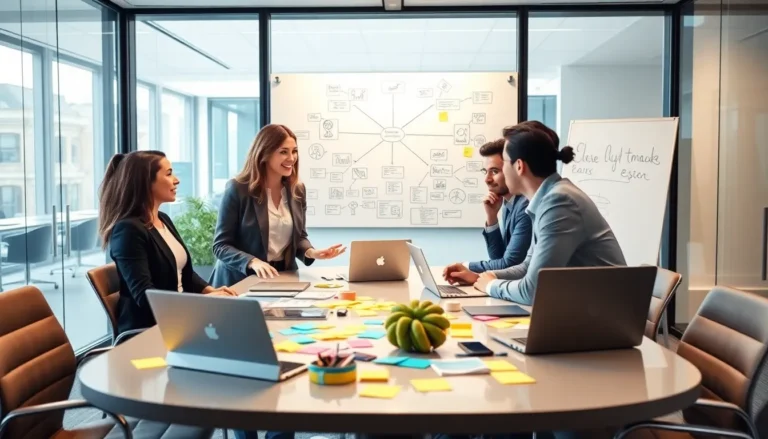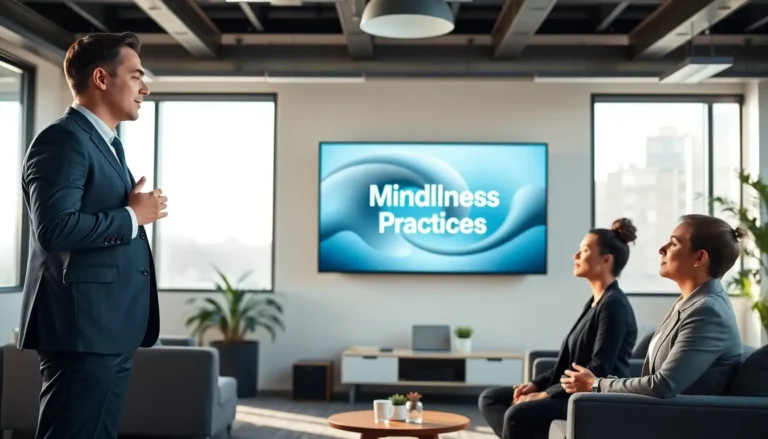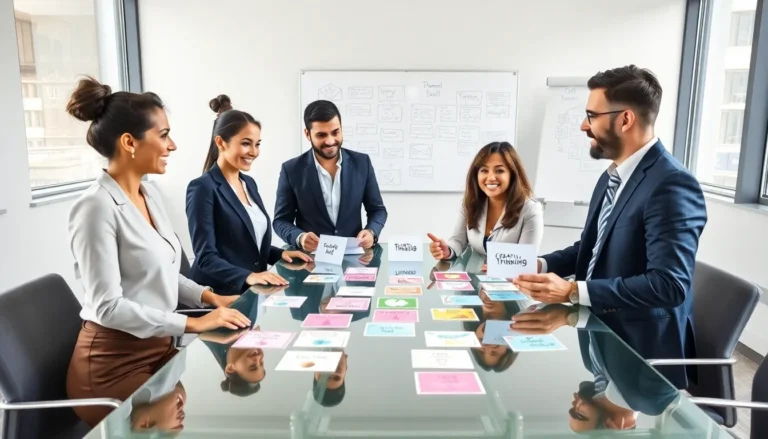Table of Contents
ToggleIn a world where creativity often takes a backseat to routine, a creative thinking workshop can be the spark that ignites innovation. Imagine a space where ideas flow freely, and brainstorming sessions feel less like a chore and more like a party. It’s not just about thinking outside the box; it’s about tossing the box out the window altogether.
Participants dive into fun activities that challenge conventional thinking and unleash their inner creative genius. Whether it’s through quirky games or collaborative projects, these workshops transform mundane moments into lightbulb moments. So, if you’re ready to swap your daily grind for a dose of inspiration and laughter, buckle up! This workshop promises to turn even the most serious thinkers into playful problem solvers.
Overview of Creative Thinking Workshops
Creative thinking workshops provide a structured environment to foster innovation and ideation. Participants engage in activities designed to break down barriers to creativity, stimulating fresh ideas. These sessions often include collaborative exercises where everyone contributes, enhancing team dynamics.
Workshops emphasize playful interactions through unconventional activities like quirky games. Each game serves as a catalyst for inventive problem solving, allowing participants to shift their thoughts from the mundane to the extraordinary. Examples of such activities include brainstorming sessions that encourage unfiltered idea generation.
Facilitators play a crucial role in guiding discussions and ensuring a supportive atmosphere. Their experience helps maintain focus while encouraging open-mindedness. It’s common for workshops to adapt based on participant responses, creating a tailored experience for everyone involved.
Networking opportunities arise naturally as participants share their insights and experiences. Building connections can lead to lasting collaborations beyond the workshop setting. Personal growth occurs as well, with individuals discovering new aspects of their creative potential through exploration.
Benefits extend to workplace settings as attendees can implement learned strategies back at their jobs. They return equipped with tools to enhance group creativity and innovation processes. Overall, creative thinking workshops serve as effective venues for professional development and personal enrichment.
Benefits of Attending a Creative Thinking Workshop
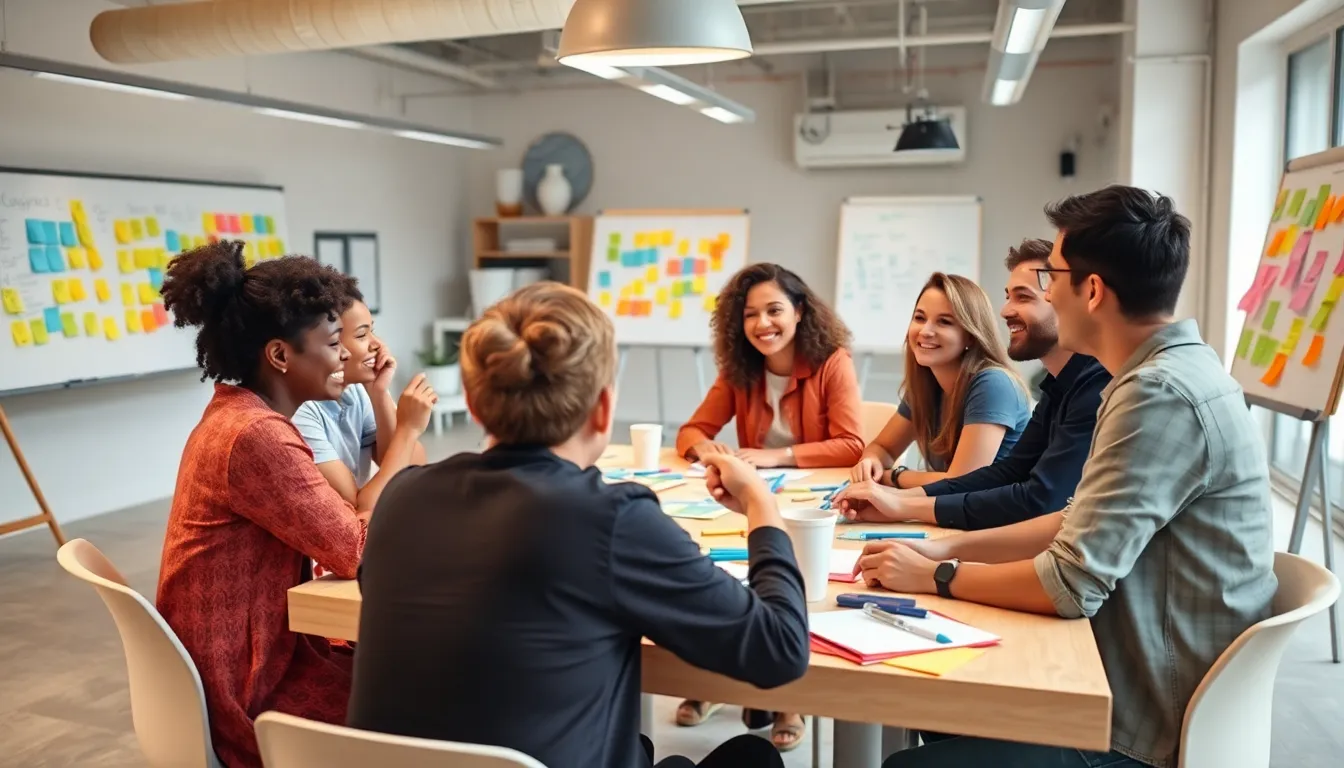
Attending a creative thinking workshop offers numerous advantages for individuals seeking to improve their problem-solving capabilities.
Enhanced Problem-Solving Skills
Participants develop sharper problem-solving skills through interactive activities. Workshops encourage participants to approach challenges from different angles. Engaging in group discussions fosters diverse perspectives. Techniques like brainstorming and mind mapping help break down complex problems into manageable parts. Examples of real-world scenarios provide context, enhancing practical application. In turn, individuals gain confidence in their abilities to tackle obstacles creatively. This newfound confidence translates into their daily work and personal challenges.
Boosted Creativity and Innovation
Creativity flourishes in an encouraging workshop environment. Participants discover unique methods to unlock their inner creativity. Experiential learning empowers individuals to experiment with innovative ideas. Activities designed for fun often lead to unexpected insights. Network opportunities also allow sharing of fresh ideas among a diverse group. This collaborative atmosphere propels innovation, inspiring individuals to implement creative solutions in their roles. Overall, enhanced creativity becomes a significant advantage in workplace problem-solving dynamics.
Key Components of a Creative Thinking Workshop
Creative thinking workshops incorporate various elements that nurture innovation. Activities and exercises form a vital part of the overall experience, fostering unrestricted brainstorming and exploration of new ideas.
Activities and Exercises
Interactive activities engage participants and spur creativity. Techniques like brainstorming enhance idea generation, while hands-on tasks encourage experimentation. Examples include role-playing scenarios and design challenges, allowing participants to step outside their comfort zones. Additionally, mind mapping serves as a visual tool for organizing thoughts and fostering connections among ideas. Through these diverse exercises, individuals develop unique approaches to problem-solving and creative expression.
Group Discussions and Collaboration
Collaborative group discussions enhance the workshop experience significantly. Participants share diverse viewpoints during these discussions, opening pathways to innovative solutions. Structured dialogues facilitate effective idea exchange, breaking down communication barriers. Engaging in feedback sessions allows individuals to critique and refine each other’s thoughts, ensuring their ideas evolve. Networking opportunities flourish as attendees connect over shared experiences, potentially leading to future collaborations. Such environments promote a culture of trust and openness, encouraging each person’s voice to be heard and valued.
How to Choose the Right Creative Thinking Workshop
Selecting the right creative thinking workshop involves considering several key factors.
Factors to Consider
Evaluate the workshop’s goals and how they align with personal or organizational needs. Look for facilitators with relevant experience and a strong background in creativity training. Assess the structure and format; interactive elements typically enhance engagement and foster collaboration. Consider the duration of the workshop, as full-day sessions may provide more in-depth exploration than shorter options. Ask for reviews or testimonials from previous participants to gauge the workshop’s effectiveness. Finally, explore pricing options, ensuring the investment matches the expected benefits.
Recommended Workshops
Many notable workshops focus on enhancing creative thinking. “Creative Problem Solving” offers techniques for structured brainstorming to generate innovative solutions. “Design Thinking Bootcamp” emphasizes empathy in understanding user needs, which can improve product development significantly. “The Art of Improv” employs improvisational games to boost spontaneity and adaptability in thinking. “Innovation Labs” provide a hands-on approach, allowing participants to work on real-world projects in collaborative settings. Local community centers or online platforms often host such workshops, making them accessible for diverse attendees.
Creative thinking workshops offer a vibrant space for individuals to unlock their potential and embrace innovative problem-solving. By participating in engaging activities and collaborative exercises, attendees can break free from conventional thought patterns and discover new perspectives.
These workshops not only enhance creativity but also foster valuable connections among participants, leading to fruitful collaborations. With the right workshop, individuals can return to their daily routines equipped with fresh ideas and strategies to tackle challenges creatively. Embracing the playful nature of these sessions can transform how one approaches both personal and professional obstacles, making them an invaluable investment in one’s growth.

